Emergencies rarely arrive with a warning. Whether it’s a flat tyre on a remote highway, or a dead battery in the middle of nowhere, all these situations require you to prepare beforehand. That is why every driver must always carry an emergency kit with them at all times. But what to keep in it?
Here are the five most important things you should always have in your car in order to deal with emergent situations at all times.
Flat-tyre prep
Flat Tyres are one of the most common roadside issues. Be it a sharp object, uneven roads or even extreme weather conditions, it can leave you with a deflated tyre.
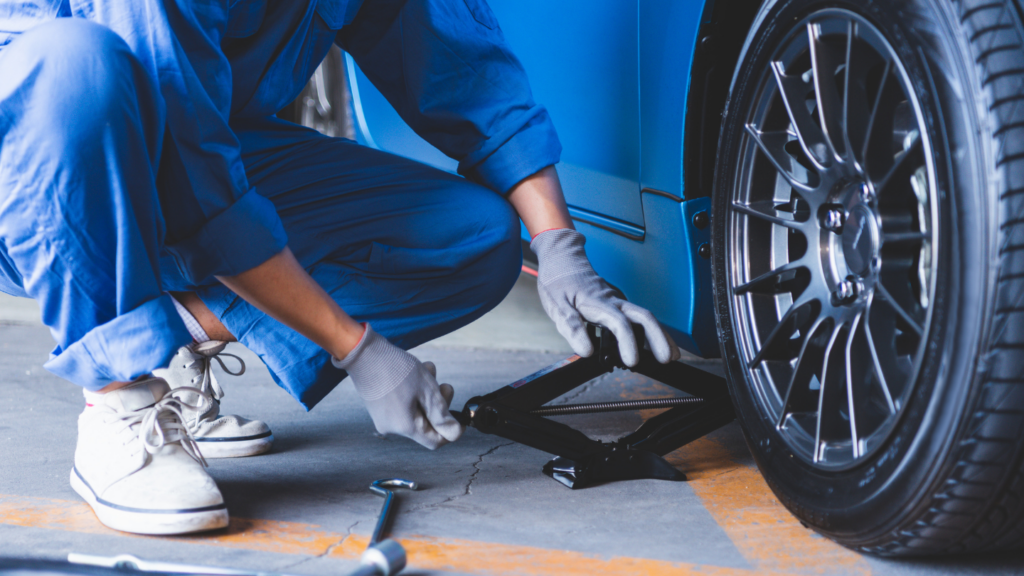
What to keep
- A properly inflated spare tyre
- A car jack
- A lug wrench or a tyre iron
In case your car didn’t come with a spare, it’s handy to have a puncture repair kit instead. You’ll still need to take the wheel off to use it so keep the jack and tyre iron too. These are not proper repairs, but they do a good enough job for you to be able to safely drive to the nearest garage or tyre shop for a complete fix.
Why?
In case you have a flat tyre, it’s extremely dangerous to continue driving as it impairs the performance of the vehicle quite a lot which further risks the safety of all passengers. You can also end up doing further mechanical damage to the rims, suspension and steering components which would be a massive bill worth thousands of dollars. So, with a spare tyre kit in the boot, you’re ready to deal with any flat tyres without being stranded.
Jumper cables
A common problem with cars older than a few years is the risk of a battery failure. All it takes is for you to leave your lights accidentally on overnight, or even a missed inspection at service. A dead battery means the car won’t start, even if it was running fine when you arrived at your stop. This can be especially worrisome in a sketch location, and jumper cables can come in handy in such situations.
What to keep
- Jumper cables with insulated grips
- Optional: A portable jumper starter
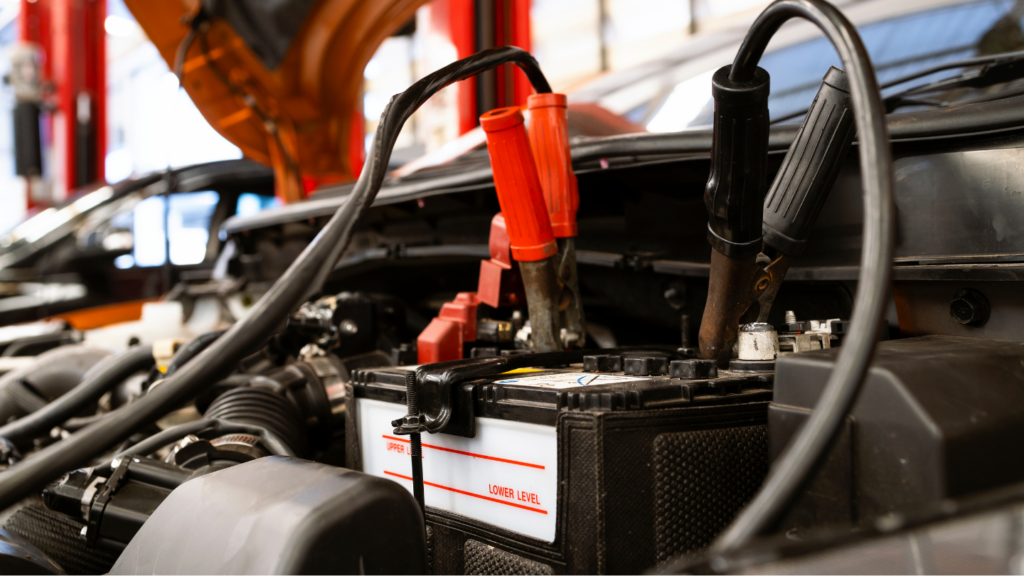
Why?
Jumper cables can help you restart your vehicle with the help of another vehicle, no roadside assistance required. If you are completely isolated, a portable jumper starter will be even better as it works without any other vehicle around.
Owner’s manual
Your owner’s manual, yes that dusty old book, holds almost all the information you require about your car in a state of emergency. You can usually find it in your vehicle’s glovebox.
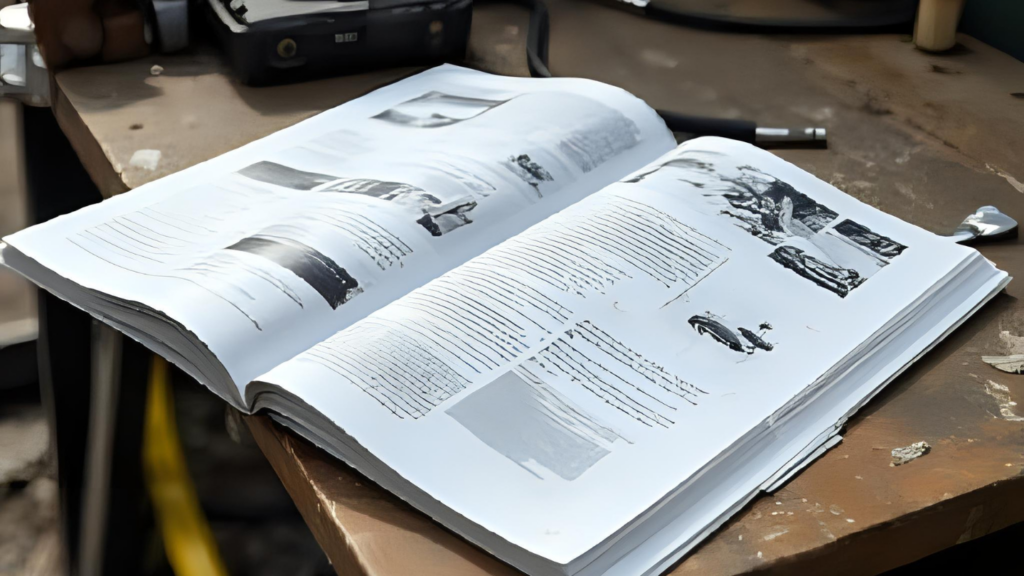
What it covers?
- Warning lights meanings
- Fuse box and fuse replacement instructions
- Tire pressure guidelines
- Recommended fluids and where to find them
Why?
Your owner’s manual holds the answers to many on-the-spot questions. Don’t guess when dealing with an alert light or strange sound, just consult the manual.
Tow rope
In case you’re not able to get your car going despite your best efforts, and there’s no available recovery truck for hours, your best bet at not getting stranded is to be towed. This is also handy if you happen to get your stuck vehicle out of mud, snow or even a pothole? A tow rope can become your lifesaver in situations like these.
What to keep?
- A high-strength tow rope (cars weigh a lot even when rolling)
- Tow hooks
Why?
In dire situations, these two things can help you get your car to safety with the help of a passerby vehicle or even during off-roading adventures.
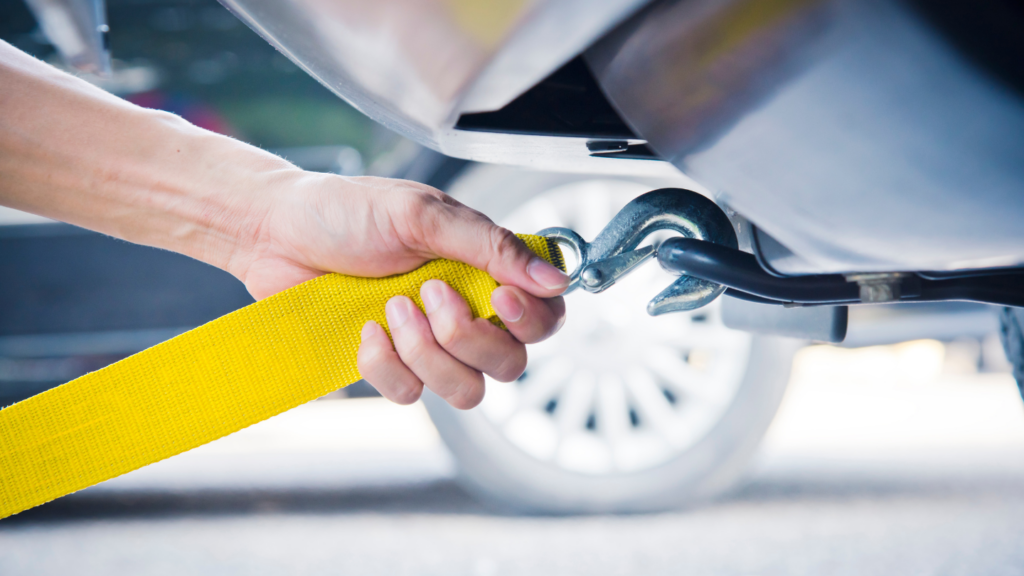
Vehicle insurance and documents
Your vehicle insurance, registration and roadside assistance contacts won’t just help you out when your car breaks down but also during routine police checks and outstation trips.
What to keep?
- Vehicle registration certificate
- Insurance papers (with claim and contact numbers)
- Roadside assistance info
- Your driver’s license
Why?
Quick access to these documents saves time and confusion during high-stress situations like accidents or inspections. Keep them in a clearly marked, waterproof folder in your glovebox.
Final Thoughts
This is a non-exhaustive list, but these five things will come in very handy in any situation. With these five car-specific essentials in place, you’ll not only feel more confident behind the wheel but also be in a better position to help yourself and others if things go wrong.
A few minutes of preparation today can save hours of frustration tomorrow. Check your car emergency kit this weekend and drive smarter, safer, and stronger.
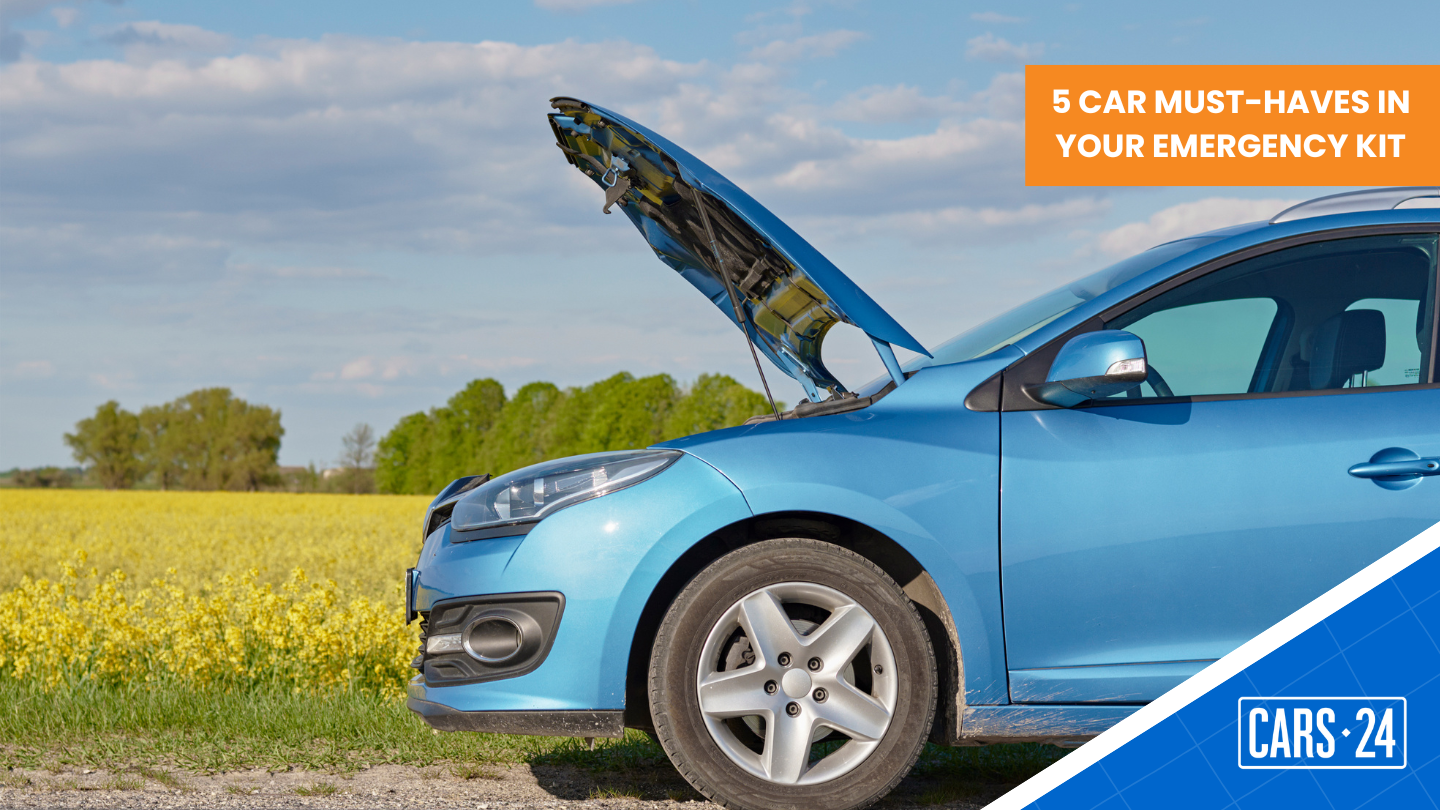
Comments
New Comment